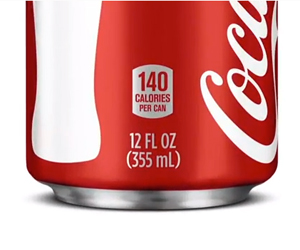 This past weekend my beloved New England Patriots, a team in the U.S. National Football League, lost in the conference championship game, falling one game short of the Super Bowl. I was devastated and inconsolable, and even as I write this I sadly consider what could have been.
This past weekend my beloved New England Patriots, a team in the U.S. National Football League, lost in the conference championship game, falling one game short of the Super Bowl. I was devastated and inconsolable, and even as I write this I sadly consider what could have been.
Up until what ultimately became the Patriots’ final game, their season was fantastic. They won 12 out of 16 games and earned the second seed going into the playoffs. But against a motivated Baltimore Ravens team, the wheels came off and the Patriots were handily defeated, at home no less. I wholeheartedly expected the Patriots to at least make the Super Bowl, if not win it. I never expected this.
I had a similar surprise as I watched Coca-Cola’s two-minute spot addressing the obesity problem, which is often blamed on the soda industry and high-fructose corn syrup. If you haven’t seen it, take a look.
Everything was going great, until it wasn’t
The first 90 seconds of the spot were fantastic. As a viewer, I learned some of the steps the nation’s leading beverage company is taking to provide us with healthier drinking options. It has more than 180 low- and no-calorie options, many of which have replaced higher-calorie offerings in school vending machines. It has created smaller, portion-controlled sizes as well as boldly stated the calorie count of each drink on its cans. It supports initiatives like the Boys & Girls Clubs that encourage kids and young adults to get active. These efforts have helped reduce the average calories per serving across the soda industry’s products in the United States by about 22 percent.
That’s a fantastic story, if it stopped there. If Coca-Cola had admitted that overconsumption of its higher-calorie beverages has led to greater numbers of obese individuals while emphasizing its efforts to offer healthier beverage options, portion control and transparency in calorie counts, I’d applaud it (though would wonder why its message warranted a 90-second spot). But it didn’t admit the truth, and the ad didn’t stop there.
At about the 90-second mark, Coca-Cola’s storytelling machine went off the rails. Instead of coming clean and admitting that it’s a source of the problem, it proclaimed that “all calories count, no matter where they come from.” The line was made intentionally vague because it implies something that is not true. While it’s true that all calories count, it’s untrue that they’re created equal, and that’s indisputable.
Telling an Authentic Story
The essence of brand storytelling is to find your brand’s story platform—the authentic story at the heart of your brand—and tell it in ways that people will enjoy and share. While Coca-Cola offers healthier options, its story platform does not revolve around health in the way that the quick-serve restaurant Subway’s does. Subway has earned the right to tell that story because it’s committed to supporting a healthier lifestyle, even though you can easily get a foot-long meatball sub with a Coke and chips at any of its restaurants.
Taco Bell, on the other hand, doesn’t support a healthier lifestyle, and to its credit, it doesn’t pretend to. Taco Bell’s story focuses on being open late, serving affordable food fast and creating unique food combinations, for example a taco that features a Doritos shell. Taco Bell doesn’t promote healthier options, because that’s not its story. It doesn’t even promote authentic Mexican fare, because that’s not its story either. A visit to Taco Bell’s website reveals promotions for its $0.99 Loaded Grillers, its Variety Taco 12 Pack and its “Live Mas” motto. Admittedly it does have a link buried a few pages deep to its support for a “balanced lifestyle,” but you’d be hard-pressed to find it or find any value in it.
Taco Bell doesn’t pretend. It embraces its story and sticks to it.
There Is No Middle Ground in Brand Storytelling
Coca-Cola is a fantastic content marketer, and at Story we’re big fans of its commitment to storytelling. But to think that Coca-Cola was crazy enough to open this door—a door promising complete transparency—and then failed to meet the standard it was pretending to set is kind of breathtaking.
A brand must have a commitment to its story. Coke’s product line and its efforts to make the world a healthier, more active place are indeed part of its narrative, but Coke went too far. It is hard to believe that Coke will offer anything of value in the fight to rid our world of obesity. The two-minute spot concludes without a promise to take action or an answer to how we can all make a real difference (as the spot promises in its YouTube description to provide).
Rohit Bhargava believes that tackling obesity now is a smart strategy for Coke. It’s true that there’s a lot of public pressure and that high-fructose corn syrup has a bad reputation, but if promoting a healthy lifestyle is not an authentic part of a brand’s story, I can’t agree that it is a smart strategy. At least it won’t be a fruitful one.
What do you think? Is Coke making the right move at the right time? Is it telling the right story?
Additional reporting by Kirk Cheyfitz



Pingback: Story calls Coke out on the carpet « cesmithcreative